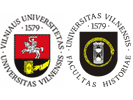On April of 1920 elected Constitutive Parliament term continued till the 6th of October 1922. It worked strenuously, there took place 257 ordinary meetings, which continued for some hours every day. They often ended in the next morning. The most important task of Constitutive Parliament was to prepare a permanent Constitution of Lithuanian Republic, but it performed other rules’ publishing functions, too. It performed the control of executive government institutions of all the levels. The education of parliament members was much better than the middle education of Lithuanian citizens, but the most of them didn’t have university education. But it wasn’t a big imperfection of just born parliamentary of Lithuania. A diploma or an academic degree isn’t identical to the broad mind and to the knowledge, which is necessary for politic leaders. It can be acquired in the way of self – education, too. Oratorical skills are very important, too.
In opposition to other parliaments of the West, there weren’t many lawyers in Lithuanian Constitutive Parliament, but there were oratory skills characteristic for other professions’ representatives, who sometimes didn’t have both the university degree and secondary education, for example, leaders of social democrats like K. Bielinis and J. Plečkaitis. Next to them the most eminent orators were social democrats: an engineer S. Kairys, a scientist – chemist V. Čepinskis, a leader of populists M. Sleževičius and a Christian democrat priest M. Krupavičius. In the constitutive parliament the Right and the Left differed from each other not only in the matter of social reforms, first of all agrarian reform, but also in the standpoint to Catholic religion and to the church place in the state. Disagreements reached the culmination in 1922 during discussion about the final wording of the constitution. The offers of social democrats and populists were rejected, because the majority of votes had Christian democrats. In addition, the Right used not only the objective arguments, but also the demagogy. The Right abstained from voting for the Constitution. It was accepted by Christian democrats and by a few executives of national minorities. The anticlericalism of the Left was one of the causes, which influenced the downfall of parliament democracy in Lithuania as the result of revolution in December 1926.
Discussions in the Constitutive Parliament showed, that its members seriously looked at the work of Constitution preparation, though they not always were able to find the compromises. They weren’t afraid to express their opinion and they didn’t tremble because of the reaction in Warsaw, Paris, Moscow or London. |


 dizainas ir programavimas giriaus
dizainas ir programavimas giriaus  dizainas ir programavimas giriaus
dizainas ir programavimas giriaus